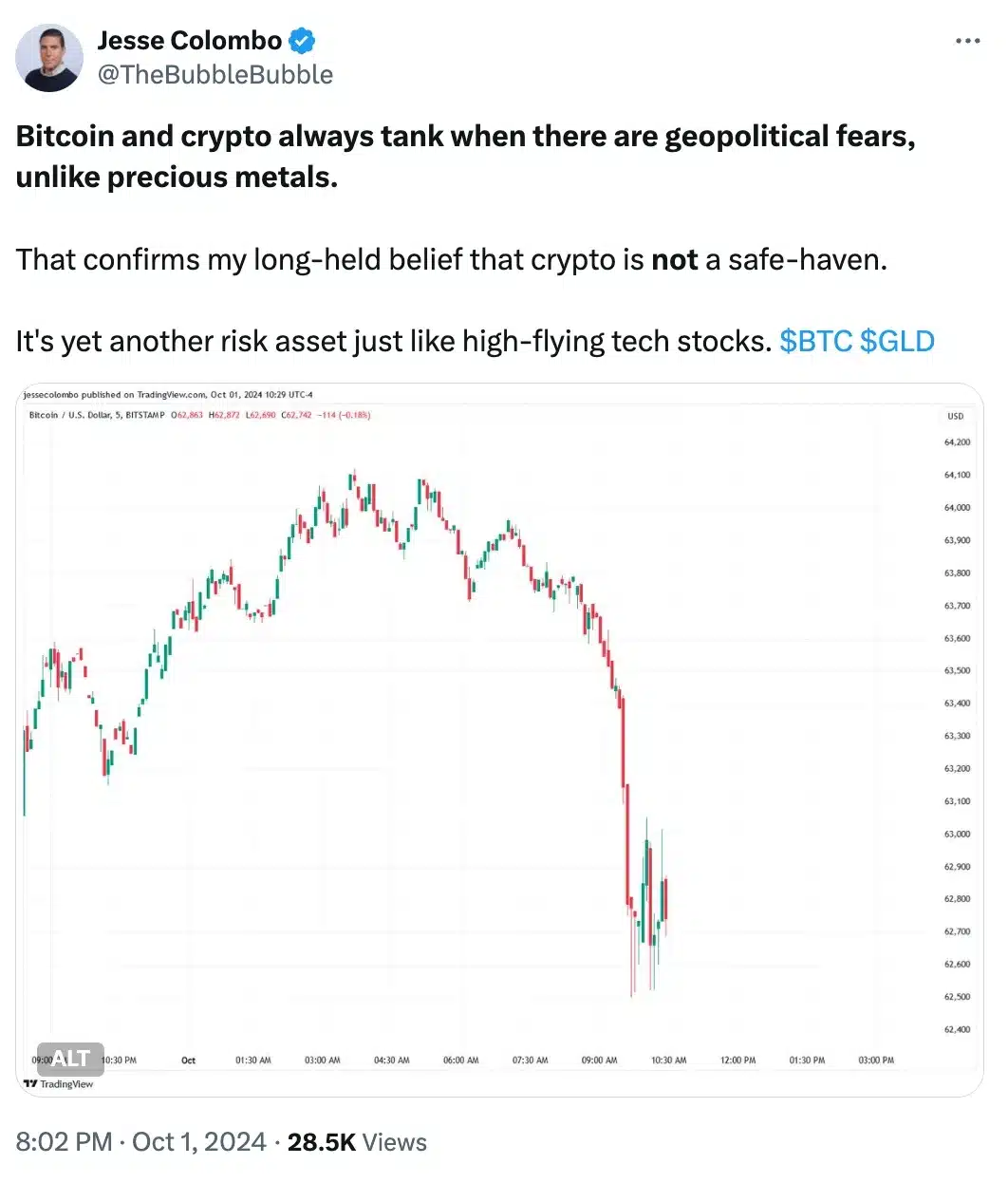- Bitcoin ETFs faced record outflows of $242.6 million amid rising geopolitical tensions.
- Ethereum ETFs also fell, with cumulative outflows totaling $48.6 million as of October 1.
After a period of robust inflows, Bitcoin [BTC] exchange-traded funds (ETFs) saw a remarkable turnaround, marking record outflows.
Bitcoin ETF analyzed
On September 27, inflows were an impressive $494.4 million; however, eleven American locations on October 1 Bitcoin ETFs faced a collective outflow of $242.6 million – the largest in almost a month, following a $288 million outflow on September 3.
One of the hardest hit was Fidelity’s FBTC, which alone accounted for $144.7 million in outflows.
Other significant losses included ARK 21Shares’ ARKB, with a withdrawal of $84.3 million, and Bitwise’s BITB, which saw an exit of $32.7 million.
Meanwhile, BlackRock’s IBIT saw positive inflows of $40.8 million, marking the 15th straight day of no outflows, highlighting mixed sentiment within the Bitcoin ETF market.
What causes this decline?
The recent decline in the Bitcoin and cryptocurrency markets is largely due to escalating tensions between Israel and Iran.
Iran’s missile strikes in retaliation for Israel’s actions against Hezbollah have fueled market uncertainty, leading to significant sell-offs.
This conflict is not new; earlier this year, Iran retaliated with drone and missile attacks that sent Bitcoin down more than 8%.
With reports indicating that the current situation may worsen, the potential for further negative impacts on the crypto market remains high.
Noting what precious metals analyst Jesse Colombo said:


Source: Jesse Colombo/X
Ethereum ETFs are following Bitcoin’s example
As expected, Ethereum [ETH] ETFs saw a notable decline, similar to that of Bitcoin ETFs.
Although the Ethereum ETF had not had sustained inflows like its Bitcoin counterpart, but had recently recorded some significant inflows.
However, as of October 1, cumulative outflows for Ethereum ETFs totaled $48.6 million.
Grayscale’s ETHE topped the charts with the highest outflows of $26.6 million, followed by Fidelity’s FETh and Bitwise’s ETHW, which saw outflows of $25 million and $9 million, respectively.
While most Ethereum ETFs reported zero flows, 21Shares’ CETH and VanEck’s ETHV bucked the trend, with inflows of $1.2 million and $2.7 million, respectively.
Impact of geopolitical tensions
Needless to say, the impact of escalating tensions in the Middle East extended beyond ETFs, affecting the entire cryptocurrency market.
For example, the global cryptocurrency market capitalization fell to $2.17 trillion, which represents a decline of 4.10%, according to one report. CoinMarketCap.
Bitcoin’s value fell by more than 3%, while Ethereum saw a sharper decline of more than 6% in just 24 hours.
Traditional commodities such as gold and crude oil, on the other hand, posted significant gains; Gold prices rose 1.4% to reach $2,665 per ounce, near an all-time high, as reported by Goldprice.org.
Crude oil prices rose nearly 7% to reach $72 per barrel.
In addition, both bonds and the US dollar strengthened following the Iranian missile attacks on Israel on October 1, underscoring broader market volatility amid geopolitical turmoil.
Echoing Colombo’s sentiment, Exness’s financial markets strategist advisor Li Xing put it best when he said:
“The escalating conflict in the Middle East has prompted investors to seek safety in gold, boosting its appeal amid broader market uncertainty.”

